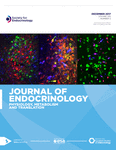The emerging role of C/EBPs in glucocorticoid signaling: lessons from the lung
- Respiratory Medicine Unit, Lung Research Laboratory L4:01, Department of Medicine, Karolinska Institutet, Karolinska University Hospital – Solna, 171 76 Stockholm, Sweden
- (Correspondence should be addressed to A B Roos; Email: abraham.roos{at}ki.se)
Abstract
Glucocorticoids (GCs) have been successfully used in the treatment of inflammatory diseases for decades. However, there is a relative GC resistance in several inflammatory lung disorders, such as chronic obstructive pulmonary disease (COPD), but still the mechanism(s) behind this unresponsiveness remains unknown. Interaction between transcription factors and the GC receptor contribute to GC effects but may also provide mechanisms explaining steroid resistance. CCAAT/enhancer-binding protein (C/EBP) transcription factors are important regulators of pulmonary gene expression and have been implicated in inflammatory lung diseases such as asthma, pulmonary fibrosis, cystic fibrosis, sarcoidosis, and COPD. In addition, several studies have indicated a role for C/EBPs in mediating GC effects. In this review, we discuss the different mechanisms of GC action as well as the function of the lung-enriched members of the C/EBP transcription factor family. We also summarize the current knowledge of the role of C/EBP transcription factors in mediating the effects of GCs, with emphasis on pulmonary effects, and their potential role in mediating GC resistance.
- Received in final form 30 October 2011
- Accepted 1 November 2011
- Made available online as an Accepted Preprint 1 November 2011
- © 2012 Society for Endocrinology











